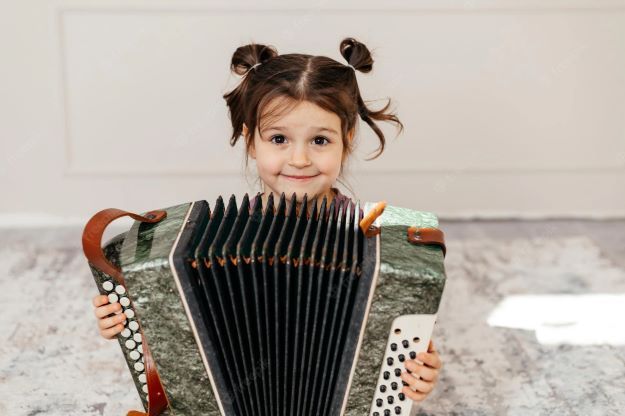I wrote recently that Madison is not a polka town. As a bit of a follow-up, I wanted to note a recent article in The Capital Times. It notes how the Roger Bright Polkafest is no more. Instead it's now the Roger Bright Memorial Music Festival.
The polka festival has been a tradition for over 15 years in the little Swiss town and attracts polka fans from all over the Midwest. Organizer Mike Nevil said that they decided to shake things up in order to appeal to a wider selection of fans.
"We've mixed it up a bit -- it's not 100 percent polka," Nevil said. "Maybe we'll attract a bigger crowd and some different people..."
The festival will switch gears on Saturday with the country sound of the Eric Nofsinger Band, followed by Copper Box's unique blend of zydeco, swamp blues and Cajun rock described as "accordion swamp rock."
So a polka festival is now a music festival that has polka bands (admittedly, a goodly amount) in addition to other types of music.
I would also draw readers' attentions to a thread in The Daily Page forum. An annoucement was made regarding the 3rd Annual Sugar Maple Traditional Music Festival. I asked one of the organizers why there was no polka to be found at this year's event while a cajun band was to perform twice. (There was 1 polka band last year.) The answer was quite revealing:
On our post-festival evaluations, patrons have most requested more Cajun/Zydeco music. Meanwhile, the entertainment committee was interested in having a band perform and workshop both days. Lost Bayou Ramblers were able to fit the bill best.
I then asked about the general attitude of the Four Lakes Traditional Music Collective (the folks who put on the festival) towards traditional music from places other than the American South. Looking at the line-ups of the three festivals and at the bands & musical styles/traditions promoted at their webpage, virtually everything is from the American South. Here's a good chunk of the reply I received from the group's president, Evan Murdock:
We're very interested in representing a broad spectrum of traditional music, and are certainly looking for more ideas for bands and styles to represent. We hope to increase our diversity over time, and actively welcome your input... Please understand that booking bands is the single most difficult thing we do (as well as the most enjoyable). So the lineup in no way reflects a lack of interest in any particular style or region, but simply a balance of schedule, budget, and, frankly, our own experience. We have worked with Rick March, the state folklorist, who is well versed in the traditional styles of the area; he turned us on to Norm Dombroski, and a number of other styles from the area we'd like to feature.
That said, I think it's true that on both a regional and national level the traditions of the Midwest are underrepresented, and it's utterly appropriate for you to suggest that we should work to address that.
I certainly have nothing against the FLTMC or the Sugar Maple festival. The organization promotes great music and all three festival line-ups look fantastic to me. I'd attend the festival on the strength of Guy Davis' appearance alone. The point is that a small, young organization isn't going to establish itself by heading out into left field by promoting the folk music of the Upper Midwest. And this is because of what was said in the first response by "Jeb" - people don't want it. The attendees wanted more Cajun music.
I commend the FLTMC for at least being amenable to the idea of exploring and promoting the music of the American Midwest. It is no doubt a difficult task. Some folks may be familiar with the term "Americana" with reference to music. Americana means "American roots music based on the traditions of country". Just look at the PBS series American Roots Music. It explores blues, country, bluegrass, gospel, cajun, zydeco, tejano, and Native American. Perhaps excepting the contributions of Native Americans, the program promotes the widely-held view that equates American music with the music of the American South. However, it should be noted that the producers of the program recently approached the International Polka Association in Chicago:
Paul Lovelace of New York visited to Chicago in May, 2006, to do research for the "American Roots" television show on PBS, expected to be broadcast in the Fall.. He conferred with International Polka Association President Ken Gill (center) and Chet Schafer, known as the Dean of polka DJs, in the Polka Hall of Fame and Museum.
Later, IPA Director T. Ron Jasinski-Herbert was advised that excerpts from remote broadcasts of his "Polonia Today" TV show at the 1985 IPA Festival of Polka Bands and IPA Festival may be used as part of the program.
I presume this is the same show and that PBS is producing more episodes. So while the traditional music of the American South flourishes, that of the Upper Midwest is left to flounder.
So what of polka? How is it doing outside of Madison? While I think that a thorough examination would need to be done by the Center for the Study of Upper Midwestern Cultures or a similar group, I did find this article in the Milwaukee Journal Sentinel called "Polka still has a few twirls left". The subtitle reads: "Despite losing ground in major cities, music still thriving in rural areas". So there is some hope. I personally don't expect polka to ever become popular again. But it would be nice if our state dance could at least gain a little respectability here in Wisconsin generally and Madison specifically.

No comments:
Post a Comment